Don't wanna be here? Send us removal request.
Text
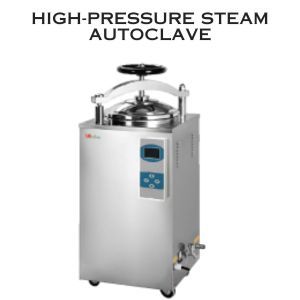
#High-Pressure Steam Autoclave#Autoclave#Autoclave supplier#Autoclave manufacturer#Buy autoclave manufacturer
0 notes
Text
Bar-Coded Cryogenic

Labmate provide a reliable and traceable solution for the storage of precious biological samples in ultra-low temperature environments. with a capacity of 0.5 mL that guarantees stability and facilitates contamination-free handling.Height 32 mm.
0 notes
Text
Benchtop Colorimeter

A benchtop colorimeter is a device used to measure the color of a sample. It's commonly used in various industries such as food and beverage, pharmaceuticals, paint, and textiles, where accurate color measurement is critical for quality control.The sample is placed in the holder, and light of a specific wavelength or range of wavelengths is directed through it. The detector then measures the intensity of the light that passes through the sample, allowing for the determination of its color.
0 notes
Text
Automatic Colorimeter

An automatic colorimeter is a device used to measure the concentration of a substance in a solution by analyzing the intensity of color formed during a chemical reaction. It automates the process of colorimetric analysis, which traditionally involves comparing the color of a sample to standard color solutions or a color chart.Automatic colorimeters are commonly used in various fields such as chemistry, biochemistry, environmental science, and clinical diagnostics for quantitative analysis of substances like ions, proteins, enzymes, and pollutants.
0 notes
Text
Manual Colony Counter
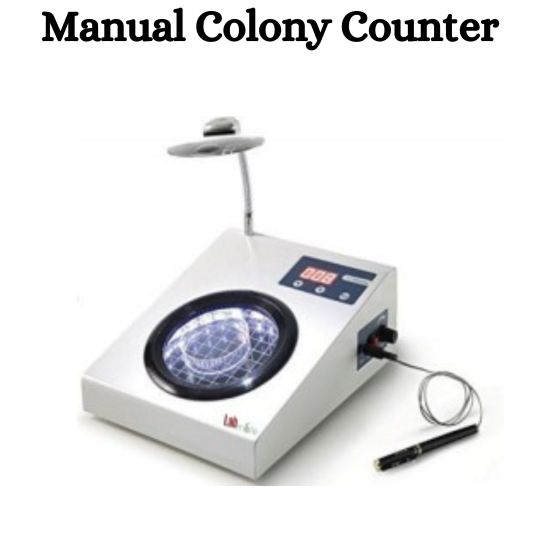
A manual colony counter is a laboratory instrument used to count colonies of microorganisms grown on agar plates. Typically, it consists of a magnifying glass or a digital camera connected to a display screen. The user visually identifies and counts individual colonies by hand, often aided by a grid or markings on the display to ensure accuracy. However, it remains a widely used method in many laboratories, especially for applications where high-throughput automated colony counting is not feasible or necessary.
0 notes
Text
Automatic Colony Counter

An automatic colony counter is a device used in microbiology laboratories to quickly and accurately count colonies of bacteria or other microorganisms growing on agar plates. Traditionally, colony counting has been done manually, which is time-consuming and prone to human error. Automatic colony counters streamline this process by using image analysis algorithms to detect and count colonies on agar plates.
0 notes
Text
Automated Cell Counter

An automated cell counter is a device used in biological and medical laboratories to count cells quickly and accurately. These devices utilize various technologies such as image analysis, impedance, or flow cytometry to count cells in a sample.They are commonly used in research, clinical diagnostics, and biopharmaceutical production for tasks such as cell culture monitoring, cell viability assessment, and cell-based assays.
0 notes
Text
Ion Chromatography
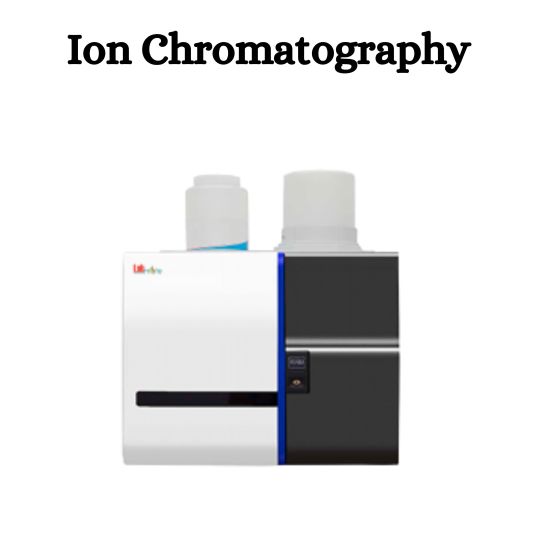
Ion chromatography (IC) is a powerful analytical technique used for separating and identifying ions in a solution. It's particularly useful in environmental analysis, pharmaceuticals, food and beverage testing, and chemical research.IC is particularly useful for analyzing ions that are difficult to separate by other chromatographic techniques, such as anions (negatively charged ions) and cations (positively charged ions). It's highly sensitive and can detect ions at very low concentrations.
0 notes
Text
Gas Chromatograph Mass Spectrometer

A Gas Chromatograph Mass Spectrometer (GC-MS) is a powerful analytical instrument used in chemistry and biochemistry for separating, identifying, and quantifying components of complex mixtures.GC-MS is widely used in various fields such as environmental analysis, pharmaceuticals, forensics, and food analysis due to its high sensitivity, selectivity, and ability to analyze complex mixtures. It's an indispensable tool for chemists and researchers in understanding the composition of substances.Desorption for solids is carried out with a flow rate of 1 to 1.5 ml/min at a regulated temperature between 100 and 350℃.
0 notes
Text

A chlorophyll meter is a device used to measure the chlorophyll content in plants, particularly in their leaves. Chlorophyll is the green pigment found in chloroplasts, which plays a crucial role in photosynthesis. By measuring chlorophyll levels, researchers and farmers can assess the health and physiological status of plants.Chlorophyll meters are valuable tools in agriculture for monitoring plant health, optimizing fertilizer application, and assessing crop stress. They can also be used in ecological research to study plant responses to environmental conditions.
0 notes
Text
Re-Circulating Chiller

A re-circulating chiller is a type of cooling system commonly used in laboratory settings and industrial processes where precise temperature control is required. It works by circulating a coolant, typically water or a water-based solution, through a closed loop system to remove heat from a process or equipment.Re-circulating chillers are essential in various applications such as laser systems, medical devices, analytical instrumentation, and semiconductor manufacturing, where maintaining stable temperatures is critical for accurate results and equipment longevity.
0 notes
Text
Circulating Chiller

A circulating chiller is a device used in laboratories and industrial settings to cool equipment or processes. It works by circulating a cooling fluid, typically water or a water-based solution, through the equipment that needs to be cooled. The chiller removes heat from the equipment or process and transfers it to the cooling fluid, which then flows through a heat exchanger where the heat is dissipated.Is routine cooling equipment used within the laboratory and industry offering a temperature range of -50 ℃ to 30 ℃.
0 notes
Text
Air Cooled Chiller
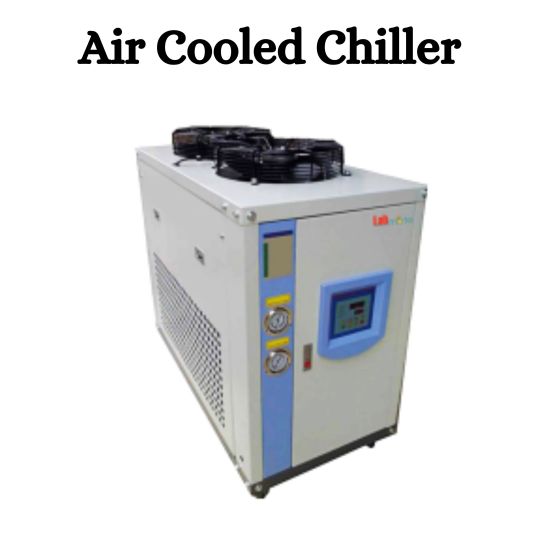
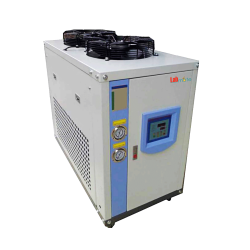
An air-cooled chiller is a type of cooling system used to remove heat from a liquid, typically water, by transferring it to the air around the chiller unit. These chillers are commonly used in industrial and commercial settings for air conditioning, process cooling, and other applications where water-cooled systems are not practical or feasible. However, they can be less energy-efficient compared to water-cooled chillers, especially in hot climates where the ambient air temperature is high.
0 notes
Text
Self-Standing Centrifuge Tube

A self-standing centrifuge tube is a type of laboratory tube designed to stand upright without external support. These tubes typically have a conical bottom, which allows them to stand steadily on a flat surface. They are commonly used in various laboratory procedures such as centrifugation, storage, and transportation of samples.A self-standing centrifuge tube is a type of laboratory tube designed to stand upright without external support. These tubes typically have a conical bottom, which allows them to stand steadily on a flat surface. They are commonly used in various laboratory procedures such as centrifugation, storage, and transportation of samples.
0 notes
Text
Screw Cap Microtube

Screw cap microtubes are small containers used in laboratories for storing and handling small volumes of liquids or solids. They are typically made of plastic and feature a screw-on cap that ensures a secure seal, preventing leakage or contamination of the contents. These microtubes come in various sizes ranging from 0.5 mL to 2.0 mL or more, and they are commonly used in molecular biology, biochemistry, and other scientific disciplines for tasks such as sample storage, centrifugation, PCR (Polymerase Chain Reaction), and more.
0 notes
Text
Microcentrifuge Tubes

Microcentrifuge tubes are small plastic tubes commonly used in laboratories for various applications such as sample storage, centrifugation, and PCR (polymerase chain reaction). These tubes typically have a capacity ranging from 0.2 mL to 2.0 mL. They are made from materials such as polypropylene or polyethylene, which are chemically inert and resistant to a wide range of chemicals and temperatures commonly used in laboratory procedures.
0 notes
Text
Centrifuge Tube

A centrifuge tube is a piece of laboratory equipment used in centrifugation, a process that separates particles from a suspension based on their density, size, and shape. These tubes are typically made of plastic or glass and come in various sizes, ranging from a few milliliters to several milliliters in capacity.hey often have caps or lids to securely seal the contents inside the tube during centrifugation to prevent spills or contamination. With a loading capacity of 15 mL that works within a temperature range between -80 °C to 121 °C.
0 notes